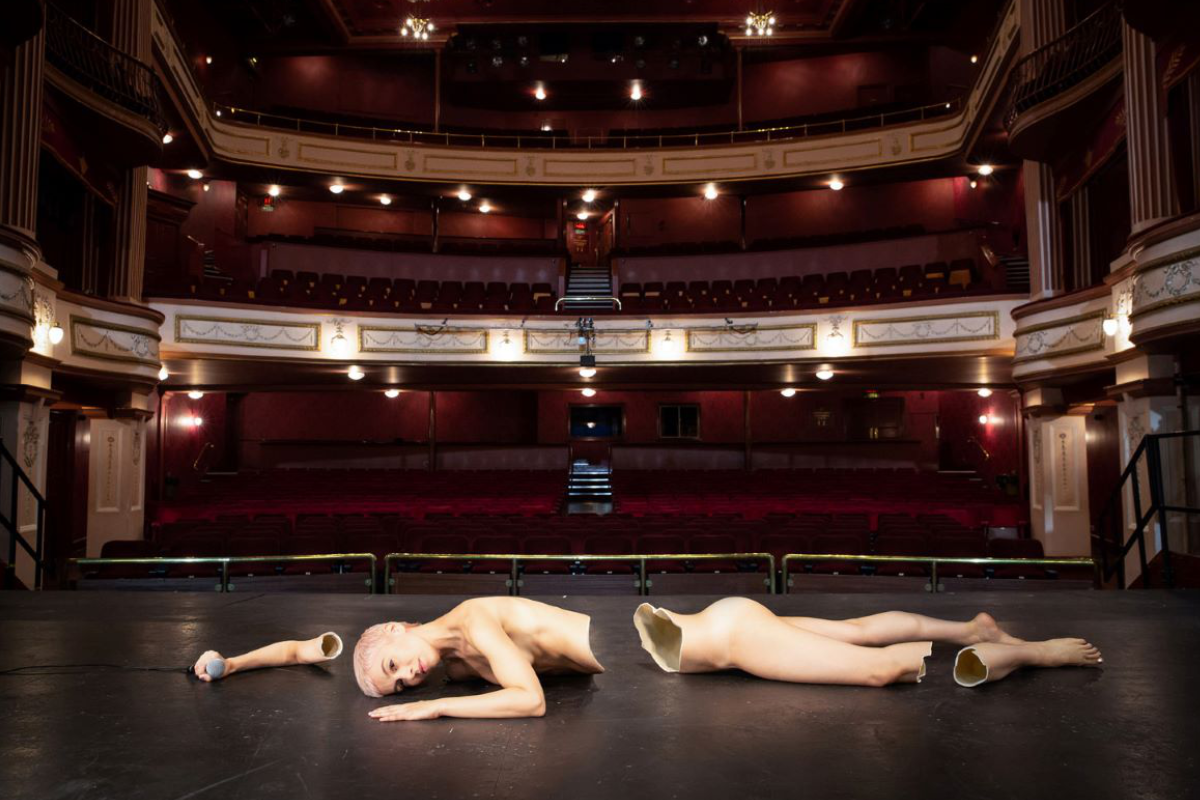
Storms don't last forever by Suzie Larke
Photo: Suzie Larke
Ending ableism in the arts
There are many challenges facing disabled-led organisations and artists. Here Jo Verrent and Cat Sheridan share their expertise on how to tackle them.
We know society still isn’t set up to include disabled people as equals. If it were, we’d need no Equality Act, and we wouldn’t see and experience endless barriers, discrimination and hate crime on a daily basis. We’d also have proportionate representation in the cultural sector. Disabled people make up 22.7% of the working age population, but this isn’t reflected in the arts.
Things are slowly (oh so slowly) changing in the cultural sector, with many funding bodies focusing increasingly on access, inclusion and representation when deciding who receives support.
Ableism is one of the terms used to describe all too frequent discrimination in favour of non-disabled people over disabled people. It’s social prejudice against disabled people based on the belief that non-disabled people are superior.
Academically there are two terms in play – ableism and disablism. Disablism emphasises discrimination against disabled people, while ableism emphasises discrimination in favour of non-disabled people. In the cultural sector ableism is increasingly used as the catch-all.
So how does it play out?
At Unlimited, we run into many examples – experiences disabled artists and arts workers encounter daily – as we set up new systems as an independent organisation.
For starters, we run into problems with standard administration functions, such as banking, with its assumption that everyone uses phones. The systems used to verify accounts, check for fraud and deal with complaints also privilege phone users, not those who don’t use them (and that’s not only deaf people). For example, Jo doesn’t use phones and is fed up with being asked to appoint someone in her family to be her ‘hearing’ link – her family are not her carers and don’t work for her.
Access to information is another key barrier. At Unlimited, we discovered the Charity Commission has few alternative formats for information creating difficulties when, for example, we need to pass information to a blind trustee. Instead we had to pay a support worker to print and take physical documents to that trustee and support them to physically sign, using a pen. This was something they had rarely done since school, given the wide range of accessible options that are available now.
Access support in disarray
When the sector is ableist, we disabled people have to take on the labour of creating the solution, actioning it, and paying for it too. In the last six months alone Unlimited has spent over £20k ensuring meetings and processes are accessible for our 93% disabled-led board and our 83% disabled-led staff.
Disabled artists and arts workers can request support from Access to Work, the government scheme that provides grants to cover access costs to help disabled people get or stay in work. Incidentally, board members can’t request this support as it’s a voluntary role. However, the system is in disarray with waiting lists of three months or more and delays in payment. The process is often described as demeaning.
The provisions on offer include support workers, BSL interpreters, lip speakers or note takers, vehicle adaptations and taxi fares. But the admin and labour of sourcing, booking, checking, paying and evaluating these types of assistance still falls entirely on the disabled person or their employer. This involves a huge amount of time, effort and emotional labour.
Alongside the cost of access, this layer of administration means disability-led organisations are generally more expensive to run than those managed by non-disabled people.
Contributing free labour
We’re currently running a survey for disabled artists and arts workers to capture data on the unpaid labour they contribute to the sector. Often it’s the extra labour of having to respond to ableism rather than just get on with their own work or practice. We’ve found that it’s a massive issue: 89% of disabled artists and arts workers are regularly being asked to contribute their labour for free.
Ableism also shows up in the relationship between productivity and access. If you can only work part-time due to your access requirements, or work in a different way that doesn’t fit the social norms of fast-paced delivery, where does that place you in a capitalist society?
Many of our artists have been exploring how paid rest periods can be incorporated in their commission budgets; if full-time salaries might be paid to part-time workers; and if lobbying could see the emergence of ‘part-time’ benefits for those with fatigue-based access needs.
Dismantling the barriers
At Unlimited, we work to question the assumptions built into ableism. How can we centre both the needs of our artists and the needs of our funders? How can we broaden our own delivery-focused mindset and encourage a slowing down and a generosity of thinking at a time of austerity – when there are higher costs, more pressure and a constantly changing landscape all around us?
The cultural sector’s engrained overwork mentality is fundamentally ableist. The very notion that ‘the show must go on’ is discriminatory. So as a sector, what can we do to recognise and eradicate ableism?
Here are some key questions to consider when assessing whether a system, process, activity or event is ableist. Are you checking your own levels of access? Are you researching, sourcing and providing your own access solutions? Or do you expect disabled people to do that work for you for free?
If we want disability representation to rise and equality of access for all, we have to dismantle the barriers we are all still creating in our sector. We believe that one day the cultural sector can and will be fit for everyone.
Jo Verrent is Director and Cat Sheridan is Senior Producer at Unlimited.
![]() www.weareunlimited.org.uk
www.weareunlimited.org.uk
![]() @weareunltd | @joverrent | @catnuala
@weareunltd | @joverrent | @catnuala
Join the Discussion
You must be logged in to post a comment.